
German — Chinese
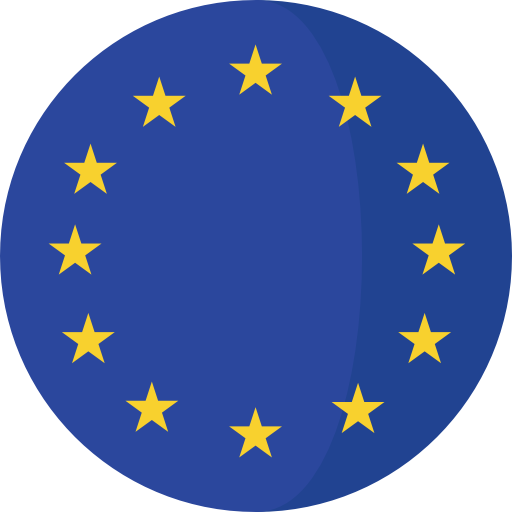
 *Track and field athletics
4x100 m Men
*Track and field athletics
4x100 m Men
 *Track and field athletics
4x400 m Men
*Track and field athletics
4x400 m Men
 *Track and field athletics
4x100 m Woman
*Track and field athletics
4x100 m Woman
 Atomic bomb
Atomic bomb

 European Union
History of the European Union
European Union
History of the European Union

 European Union
*Founding states
European Union
*Founding states
 France
France

 Geography
Geography

 Geography
***IMF Developed countries
Geography
***IMF Developed countries
 IMF Developed countries
IMF Developed countries
 IMF Developed countries
TOP2
IMF Developed countries
TOP2
 Leichtathletik-Weltmeisterschaften
2005 Helsinki
Leichtathletik-Weltmeisterschaften
2005 Helsinki
 Leichtathletik-Weltmeisterschaften
2003 Saint-Denis
Leichtathletik-Weltmeisterschaften
2003 Saint-Denis

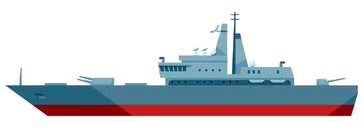
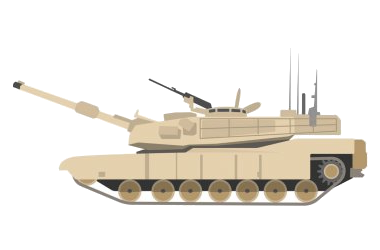
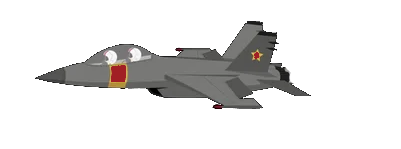
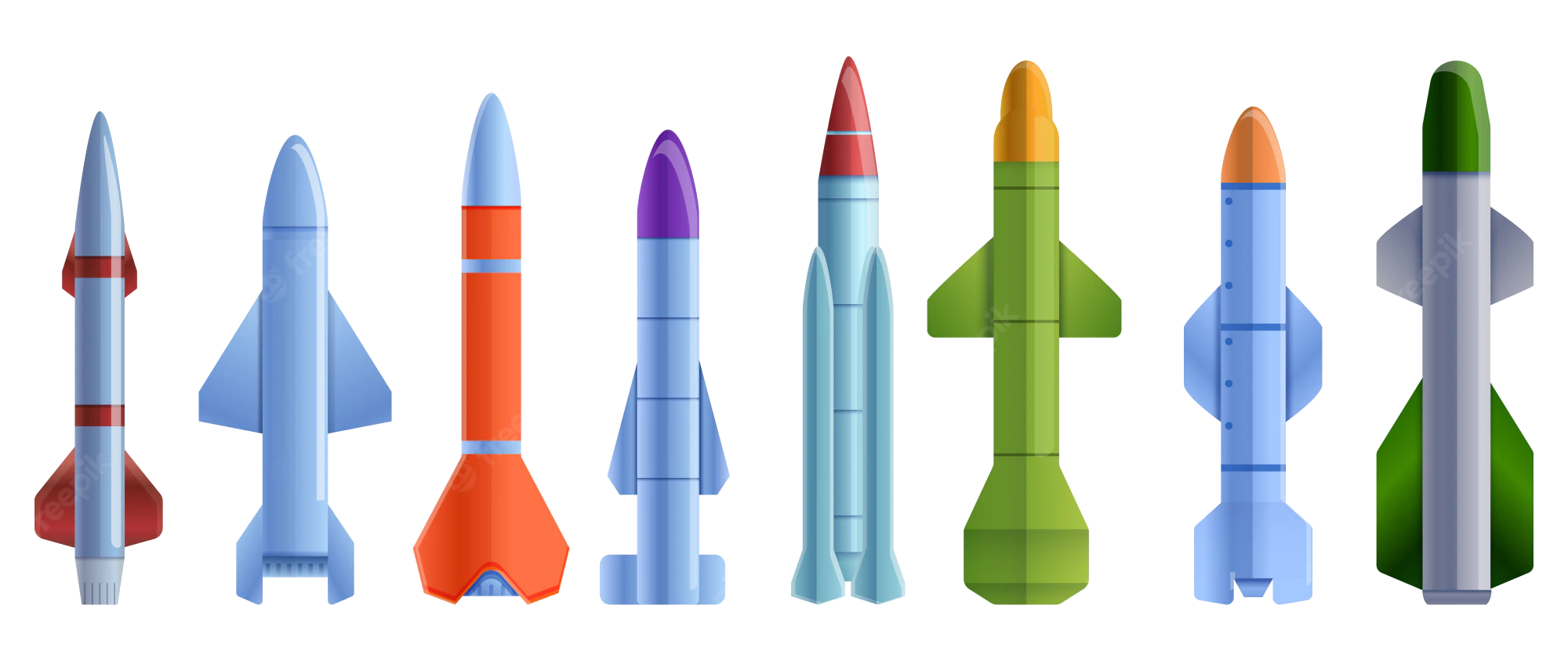 Military, defense and equipment
Nuclear Weapon
Military, defense and equipment
Nuclear Weapon

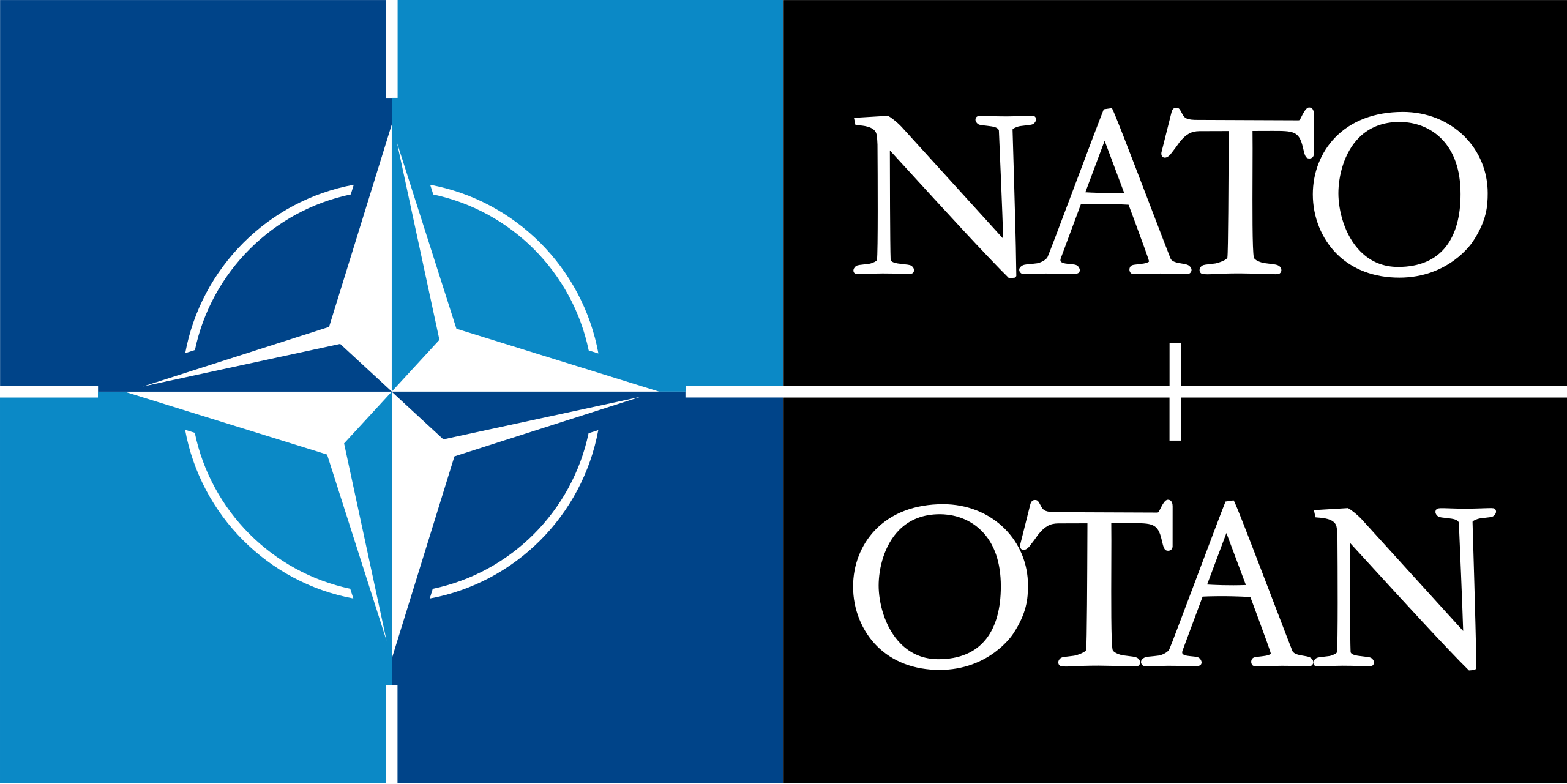 Mitglieder der NATO
Mitglieder der NATO

 Party and government
Group of the twenty most important industrial and emerging countries
Party and government
Group of the twenty most important industrial and emerging countries

 Party and government
Group of Seven,G7
Party and government
Group of Seven,G7

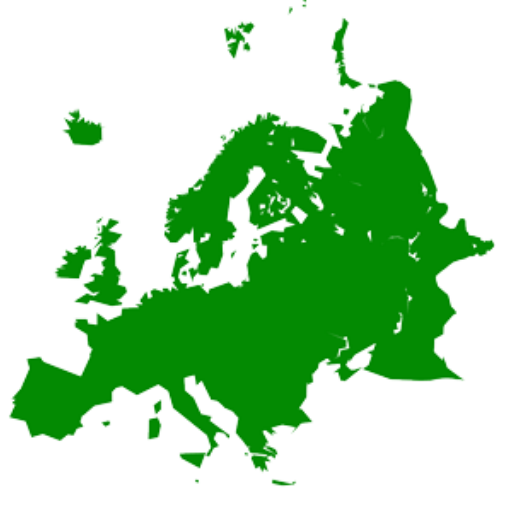 States of Europe
States of Europe

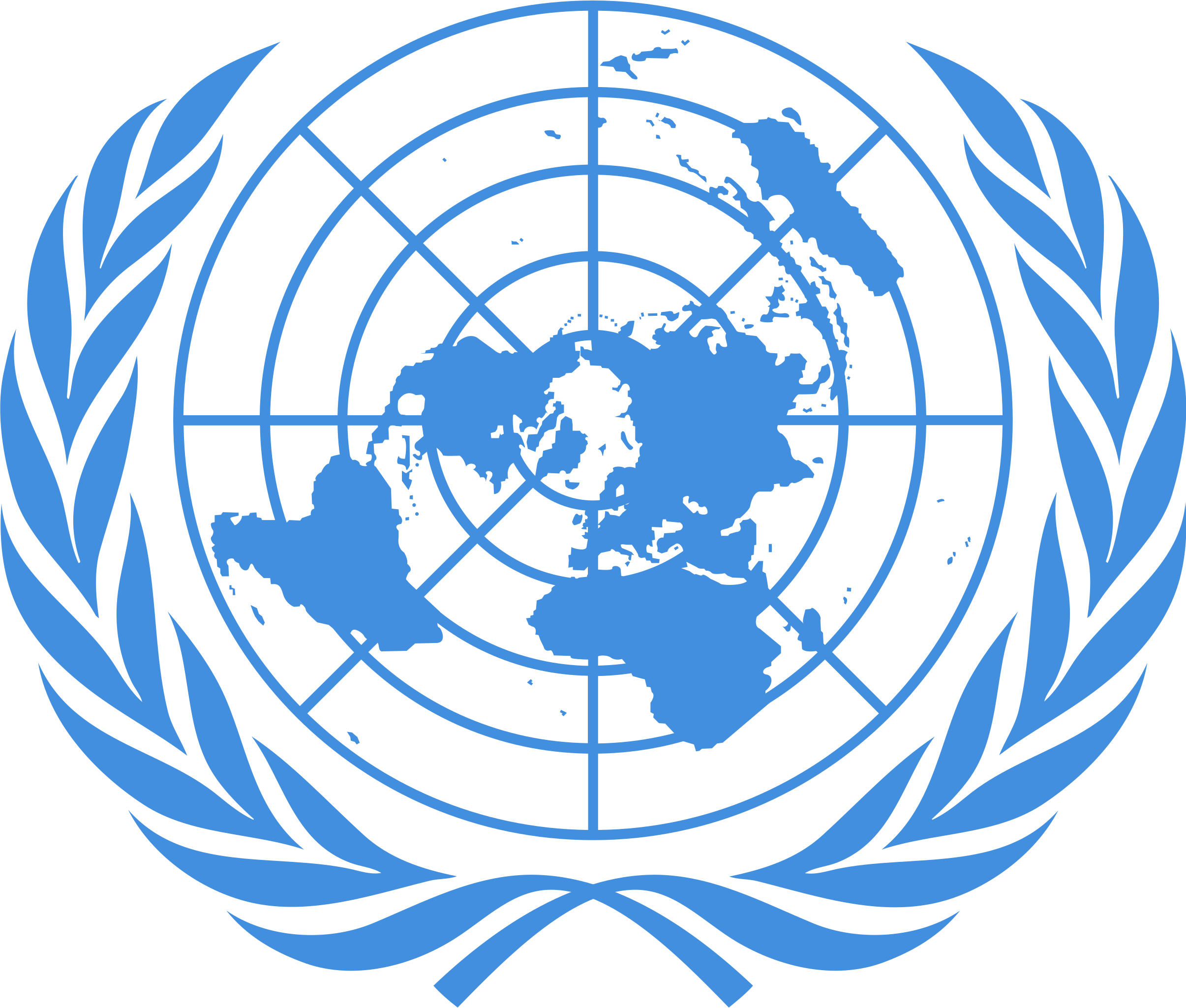 United Nations
United Nations Security Council
United Nations
United Nations Security Council
 Hydrogen bomb
Hydrogen bomb

法兰西共和国(法语:République française [ʁepyblik fʁɑ̃sɛz]),通称法国(法语:France [fʁɑ̃s] ![]() 聆听),是本土位于西欧并具有海外大区及领地[注 16]的主权国家,自法兰西第五共和国建立以来实行单一制与半总统制,首都为欧洲大陆最大的文化与金融中心巴黎。该国本土由地中海一直延伸至英吉利海峡及北海,并由莱茵河一直延伸至大西洋,整体呈六角状。海外领土包括南美洲的法属圭亚那及分布于大西洋、太平洋和印度洋的诸岛屿。全国共分为18个大区,其中5个位于海外。法国与西班牙及摩洛哥为同时拥有地中海及大西洋海岸线的三个国家。法国的国土面积全球第四十一位,但却为欧盟及西欧国土面积最辽阔的国家,欧洲面积第三大国家。
聆听),是本土位于西欧并具有海外大区及领地[注 16]的主权国家,自法兰西第五共和国建立以来实行单一制与半总统制,首都为欧洲大陆最大的文化与金融中心巴黎。该国本土由地中海一直延伸至英吉利海峡及北海,并由莱茵河一直延伸至大西洋,整体呈六角状。海外领土包括南美洲的法属圭亚那及分布于大西洋、太平洋和印度洋的诸岛屿。全国共分为18个大区,其中5个位于海外。法国与西班牙及摩洛哥为同时拥有地中海及大西洋海岸线的三个国家。法国的国土面积全球第四十一位,但却为欧盟及西欧国土面积最辽阔的国家,欧洲面积第三大国家。
今日之法国本土于铁器时代由高卢人(凯尔特人的一支)征服,前51年又由罗马帝国吞并。486年法兰克人(日耳曼人的一支)又征服此地,其于该地域建立的早期国家最终发展成为法兰西王国。法国至中世纪末期起成为欧洲大国,国力于19-20世纪时达致巅峰,建立了世界第二大殖民帝国,亦为20世纪人口最稠密的国家[来源请求],现今则是众多前殖民地的首选移民国[8]。在漫长的历史中,法国培养了不少对人类发展影响深远的著名哲学家、文学家与科学家,亦为文化大国,具有第四多的世界遗产[9]。
法国在全球范围内政治、外交、军事与经济上为举足轻重的大国之一[10]。法国自1958年建立第五共和国后经济有了很大的发展,政局保持稳定,国家体制实行半总统制,国家经由普选产生的总统、由其委任的总理与相关内阁共同执政。1958年10月4日,由公投通过的国家宪法则保障了国民的民主权及宗教自由。法国的建国理念主要建基于在18世纪法国大革命中所制定的《人权和公民权宣言》,此乃人类史上较早的人权文档,并对推动欧洲以至于全球的民主与自由产生莫大的影响[11];其蓝白红三色的国旗则有“革命”的含义。法国不仅为联合国常任理事国,亦是欧盟始创国。该国国防预算金额为全球第5至6位,并拥有世界第三大核武贮备量[12]。法国为发达国家,其GDP为全球第七大经济体系,具备世界第十大购买力[13],并拥有全球第二大专属经济区[14];若以家庭总财富作计算,该国是欧洲最富有的国家,位列全球第四[15]。法国国民享有高生活质素,在教育、预期寿命、民主自由、人类发展等各方面均有出色的表现,特别是医疗研发与应用水平长期盘据世界首位[16][17]。Frankreich ![]() [ˈfʁaŋkʁaɪ̯ç] (französisch [fʁɑ̃s], amtlich République française [ʁe.py.ˈblik fʁɑ̃.ˈsɛz], deutsch Französische Republik) ist ein demokratischer, interkontinentaler Einheitsstaat in Westeuropa mit Überseeinseln und -gebieten auf mehreren Kontinenten. Metropolitan-Frankreich, d. h. der europäische Teil des Staatsgebietes, erstreckt sich vom Mittelmeer bis zum Ärmelkanal und zur Nordsee sowie vom Rhein bis zum Atlantischen Ozean. Sein Festland wird wegen seiner Landesform als Hexagone (Sechseck) bezeichnet. Frankreich ist flächenmäßig das größte und nach Einwohnern (hinter Deutschland) das zweitgrößte Land der Europäischen Union. Es umfasst (nach Russland und der Ukraine) das drittgrößte Staatsgebiet in Europa. Paris ist die Hauptstadt und als Agglomeration mit dem Gemeindeverband Métropole du Grand Paris und den umliegenden Gebieten der Region Île-de-France größter Ballungsraum des Landes vor Lyon, Marseille, Toulouse und Lille.
[ˈfʁaŋkʁaɪ̯ç] (französisch [fʁɑ̃s], amtlich République française [ʁe.py.ˈblik fʁɑ̃.ˈsɛz], deutsch Französische Republik) ist ein demokratischer, interkontinentaler Einheitsstaat in Westeuropa mit Überseeinseln und -gebieten auf mehreren Kontinenten. Metropolitan-Frankreich, d. h. der europäische Teil des Staatsgebietes, erstreckt sich vom Mittelmeer bis zum Ärmelkanal und zur Nordsee sowie vom Rhein bis zum Atlantischen Ozean. Sein Festland wird wegen seiner Landesform als Hexagone (Sechseck) bezeichnet. Frankreich ist flächenmäßig das größte und nach Einwohnern (hinter Deutschland) das zweitgrößte Land der Europäischen Union. Es umfasst (nach Russland und der Ukraine) das drittgrößte Staatsgebiet in Europa. Paris ist die Hauptstadt und als Agglomeration mit dem Gemeindeverband Métropole du Grand Paris und den umliegenden Gebieten der Region Île-de-France größter Ballungsraum des Landes vor Lyon, Marseille, Toulouse und Lille.
Im 17. und 18. Jahrhundert hatte Frankreich eine europäische Führungsrolle und Vormachtstellung inne. Bedeutend war die politische und kulturelle Ausstrahlung: Die Hofhaltung Ludwigs XIV. wurde zum Vorbild absolutistischer Staaten in ganz Europa und die Französische Revolution mit der Erklärung der Menschen- und Bürgerrechte gab zusammen mit Okkupationen durch Napoleon Bonaparte in vielen Ländern den Auftakt zu der immer wieder von Rückschlägen unterbrochenen Entwicklung zur Demokratie. In Übersee baute Frankreich zweimal ein Kolonialreich auf. Das erste umfasste u. a. große Teile Nordamerikas und ging großenteils Mitte des 18. Jahrhunderts im Siebenjährigen Krieg verloren; das zweite mit Schwerpunkt in Afrika war im 19. und frühen 20. Jahrhundert das zweitgrößte der Welt. Im 21. Jahrhundert gilt Frankreich mit Deutschland als treibende Kraft der europäischen Integration.
Die Französische Republik wird in ihrer Verfassung als unteilbar, laizistisch, demokratisch und sozial erklärt.[7] Ihr Grundsatz lautet: „Regierung des Volkes durch das Volk und für das Volk“. Frankreich steht auf Rang 26 des Index der menschlichen Entwicklung (2019) der Vereinten Nationen.[8] Gemessen am nominalen Bruttoinlandsprodukt ist es die sechstgrößte Volkswirtschaft der Welt.[5] Die Kaufkraft pro Einwohner betrug 2016 19.254 Euro (zum Vergleich: Deutschland 21.879 Euro, Großbritannien 21.141 Euro).[9] Lebensstandard, Bildungsgrad und durchschnittliche Lebenserwartung[10] gelten als hoch. Als meistbesuchtes Land der Welt empfängt Frankreich rund 83 Millionen ausländische Touristen pro Jahr.[11][12]
Frankreich unterhält die drittstärksten Streitkräfte innerhalb der NATO und das größte Heer der Europäischen Union. Es ist eines der fünf ständigen Mitglieder des UN-Sicherheitsrates und hatte 2010 als Atommacht die weltweit dritthöchste Anzahl an Kernwaffen.[13] Das Land ist Gründungsmitglied der Europäischen Union und der Vereinten Nationen, Mitglied der Frankophonie, der G7, der G20, der NATO, der Organisation für wirtschaftliche Zusammenarbeit und Entwicklung (OECD), der Welthandelsorganisation (WTO) und der Lateinischen Union.
フランス共和国(フランスきょうわこく、フランス語: République française、通称:フランス、France)は、西ヨーロッパ、カリブ、太平洋およびインド洋に位置する共和制国家。首都はパリ。
フランス・メトロポリテーヌ(本土)は地中海からイギリス海峡及び北海へ、ライン川から大西洋へと広がる。この他世界各地に海外地域および領土を有する。
なお、フランス・メトロポリテーヌ周辺は北東がドイツとベルギーとルクセンブルク、東をスイスとイタリア、南にスペインと国境を接している。
フランスは国際連合安全保障理事会常任理事国であり、G7・G20、欧州評議会、世界貿易機関、経済協力開発機構、北大西洋条約機構、パリクラブおよびフランコフォニー国際機関における主要なメンバーである。国際政治においてはこれらの理由から、政治・経済・文化において強力な影響を及ぼす列強の一角に数えられており、ヨーロッパにおける「ビッグ4」の1つでもある。
核拡散防止条約により核兵器の保有を認められた5つの公式核保有国の1つであり、その他にアメリカ合衆国を除けば世界で唯一の原子力空母「シャルル・ド・ゴール」や原子力潜水艦を保有しており、強力な軍事力を持っている。
GDPは名目GDP世界第7位かつ購買力平価で世界第10位・ユーロ圏ではドイツに次ぐ第2位の経済力を有する国であり、高い人間開発指数を持つ先進国として知られる。数多くの世界遺産を抱えており、世界で最も観光客の多い国の1つである。
歴史的にはデカルト、モンテスキュー、ルソー、サルトルといった哲学者やマリ・キュリー、パストゥールといった科学者、モネ、セザンヌ、ゴーギャン、クールベ、ドラクロワといった芸術家の故国もしくは活躍の舞台であり、また百年戦争やフランス革命、ナポレオン戦争といった歴史的事象の主要な舞台であった。
France (French: [fʁɑ̃s] ![]() ), officially the French Republic (French: République française),[1] is a transcontinental country spanning Western Europe and overseas regions and territories in the Americas and the Atlantic, Pacific and Indian Oceans.[XIII] Including all of its territories, France has twelve time zones, the most of any country. Its metropolitan area extends from the Rhine to the Atlantic Ocean and from the Mediterranean Sea to the English Channel and the North Sea; overseas territories include French Guiana in South America, Saint Pierre and Miquelon in the North Atlantic, the French West Indies, and several islands in Oceania and the Indian Ocean. Due to its several coastal territories, France has the largest exclusive economic zone in the world. France borders Belgium, Luxembourg, Germany, Switzerland, Monaco, Italy, Andorra and Spain in Europe, as well as the Netherlands, Suriname and Brazil in the Americas. Its eighteen integral regions (five of which are overseas) span a combined area of 643,801 km2 (248,573 sq mi) and over 67 million people (as of May 2021).[13] France is a unitary semi-presidential republic with its capital in Paris, the country's largest city and main cultural and commercial centre; other major urban areas include Lyon, Marseille, Toulouse, Bordeaux, Lille and Nice.
), officially the French Republic (French: République française),[1] is a transcontinental country spanning Western Europe and overseas regions and territories in the Americas and the Atlantic, Pacific and Indian Oceans.[XIII] Including all of its territories, France has twelve time zones, the most of any country. Its metropolitan area extends from the Rhine to the Atlantic Ocean and from the Mediterranean Sea to the English Channel and the North Sea; overseas territories include French Guiana in South America, Saint Pierre and Miquelon in the North Atlantic, the French West Indies, and several islands in Oceania and the Indian Ocean. Due to its several coastal territories, France has the largest exclusive economic zone in the world. France borders Belgium, Luxembourg, Germany, Switzerland, Monaco, Italy, Andorra and Spain in Europe, as well as the Netherlands, Suriname and Brazil in the Americas. Its eighteen integral regions (five of which are overseas) span a combined area of 643,801 km2 (248,573 sq mi) and over 67 million people (as of May 2021).[13] France is a unitary semi-presidential republic with its capital in Paris, the country's largest city and main cultural and commercial centre; other major urban areas include Lyon, Marseille, Toulouse, Bordeaux, Lille and Nice.
Inhabited since the Palaeolithic era, the territory of Metropolitan France was settled by Celtic tribes known as Gauls during the Iron Age. Rome annexed the area in 51 BC, leading to a distinct Gallo-Roman culture that laid the foundation of the French language. The Germanic Franks arrived in 476 and formed the Kingdom of Francia, which became the heartland of the Carolingian Empire. The Treaty of Verdun of 843 partitioned the empire, with West Francia becoming the Kingdom of France in 987.
In the High Middle Ages, France was a powerful but highly decentralised feudal kingdom in which the king's authority was barely felt. King Philip II achieved remarkable success in the strengthening of royal power and the expansion of his realm, defeating his rivals and doubling its size. By the end of his reign, the kingdom had emerged as the most powerful state in Europe. From the mid-14th to the mid-15th century, France was plunged into a series of dynastic conflicts for the French throne, collectively known as the Hundred Years' War, and a distinct French identity emerged as a result. The French Renaissance saw art and culture flourish, various wars with rival powers, and the establishment of a global colonial empire, which by the 20th century would become the second-largest in the world.[14] The second half of the 16th century was dominated by religious civil wars between Catholics and Huguenots that severely weakened the country. But France once again emerged as Europe's dominant cultural, political and military power in the 17th century under Louis XIV following the Thirty Years' War.[15] Inadequate economic policies, an inequitable taxation system as well as endless wars (notably a defeat in the Seven Years' War and costly involvement in the American War of Independence), left the kingdom in a precarious economic situation by the end of the 18th century. This precipitated the French Revolution of 1789, which overthrew the absolute monarchy, replaced the Ancien Régime with one of history's first modern republics and produced the Declaration of the Rights of Man and of the Citizen, which expresses the nation's ideals to this day.
France reached its political and military zenith in the early 19th century under Napoleon Bonaparte, subjugating much of continental Europe and establishing the First French Empire. The French Revolutionary and Napoleonic Wars shaped the course of European and world history. The collapse of the empire initiated a period of relative decline, in which France endured a tumultuous succession of governments until the founding of the French Third Republic during the Franco-Prussian War in 1870. Subsequent decades saw a period of optimism, cultural and scientific flourishing, as well as economic prosperity known as the Belle Époque. France was one of the major participants of World War I, from which it emerged victorious at great human and economic cost. It was among the Allied powers of World War II, but was soon occupied by the Axis in 1940. Following liberation in 1944, the short-lived Fourth Republic was established and later dissolved in the course of the Algerian War. The current Fifth Republic was formed in 1958 by Charles de Gaulle. Algeria and most French colonies became independent in the 1960s, with the majority retaining close economic and military ties with France.
France retains its centuries-long status as a global centre of art, science and philosophy. It hosts the fifth-largest number of UNESCO World Heritage Sites and is the world's leading tourist destination, receiving over 89 million foreign visitors in 2018.[16] France is a developed country with the world's seventh-largest economy by nominal GDP and ninth-largest by PPP; in terms of aggregate household wealth, it ranks fourth in the world.[17] France performs well in international rankings of education, health care, life expectancy and human development.[18][19] It remains a great power in global affairs,[20] being one of the five permanent members of the United Nations Security Council and an official nuclear-weapon state. France is a founding and leading member of the European Union and the Eurozone,[21] as well as a key member of the Group of Seven, North Atlantic Treaty Organization (NATO), Organisation for Economic Co-operation and Development (OECD) and La Francophonie.
La France (Écouter), en forme longue depuis 1875 la République française (Écouter), est un État souverain transcontinental dont le territoire métropolitain est situé en Europe de l'Ouest et dont le territoire ultramarin est situé dans les océans Indien, Atlantique et Pacifique ainsi qu'en Amérique du Sud. Il s'agit de l'unique pays au monde à s'étendre sur treize fuseaux horaires. Le pays a des frontières terrestres avec la Belgique, le Luxembourg, l'Allemagne, la Suisse, l'Italie, l'Espagne et les deux principautés d'Andorre et de Monaco en Europe, auxquelles s'ajoutent les frontières terrestres avec le Brésil, le Suriname et les Pays-Bas aux Amériques. La France dispose d'importantes façades maritimes sur l'Atlantique, la Méditerranée, le Pacifique et l'océan Indien, lui permettant de bénéficier de la plus vaste zone économique exclusive du monde6.
La France est une république constitutionnelle unitaire ayant un régime semi-présidentiel. La devise de la République est depuis 1875 « Liberté, Égalité, Fraternité » et son drapeau est constitué des trois couleurs nationales : bleu, blanc, rouge. Son hymne national est La Marseillaise, chant patriotique hérité de la Révolution française. Son principe constitutif est la démocratie : le « gouvernement du peuple, par le peuple et pour le peuple ». Elle a pour capitale Paris et pour langue officielle le français depuis 1539, remplaçant le latin. Ses monnaies sont l'euro depuis 2002 dans la majeure partie du pays et le franc Pacifique dans ses territoires de l'océan Pacifique.
La France s'appelle ainsi depuis 1214, lorsque les troupes du roi Philippe Auguste battent celles de l’empereur germanique à Bouvines. La France tire son nom des Francs, peuple germanique qui a institué les premiers fondements de son État sur les bases de la Gaule romaine. C'est au fil des siècles, par des guerres, des mariages politiques et des unions souveraines, que cet État monarchique et catholique va peu à peu constituer autour de lui une véritable fédération de provinces, qui finira par se cristalliser en une nation unique sous l’effet d’une politique d'uniformisation administrative et culturelle, portée à son aboutissement par la Révolution française et la fin du régime féodal.
Du milieu du XVIe siècle au milieu du XXe siècle, elle possède un vaste empire colonial. À partir des années 1950, elle est l'un des acteurs de la construction de l'Union européenne. Deuxième armée européenne derrière la Russie, quatrième puissance nucléaire et spatiale mondiale7,8, cinquième puissance militaire mondiale9, l'un des cinq membres permanents du Conseil de sécurité des Nations unies et membre de l'OTAN, la France est également membre du G7, du G20, du Conseil de l'Europe, de la zone euro, de l'espace Schengen, de la commission de l'océan Indien, de la communauté du Pacifique, et abrite le siège de plusieurs organisations internationales dont le Conseil de l'Europe, l'UNESCO, l'OCDE, Interpol, le Centre International de Recherche sur le Cancer. Elle exerce ainsi une influence notable en matière politique, économique, militaire et culturelle, en Europe et dans le reste du monde, elle est classée en 2019 au premier rang mondial de l'indice Soft Power 30 grâce à sa vaste portée diplomatique, sa richesse culturelle et à la forte maîtrise internationale du président de la République10.
Seul pays au monde à exercer sa souveraineté sur des territoires répartis sur quatre océans et deux continents11,N 7, elle joue un important rôle géopolitique au niveau mondial, grâce à un réseau d'ambassades et de consulats étendu, le deuxième au monde derrière celui des États-Unis, et elle dispose de bases militaires sur tous les continents et de la troisième puissance nucléaire militaire mondiale. Du fait de son territoire étendu et réparti sur l'ensemble de la planète, la France est de surcroît un des premiers pays du monde pour la variété de ses milieux maritimes et leur biodiversité12.
La France est, avec un PIB nominal de 2 938 milliards de dollars US en 2021 selon le FMI, la troisième économie européenne derrière l'Allemagne et le Royaume-Uni, ainsi que la septième économie mondiale13. Malgré un taux de chômage de 8 % (juin 2021), elle affiche un niveau de vie « très élevé » (24e au classement IDH en 2018). Elle figure parmi les chefs de file mondiaux dans les secteurs de l'agroalimentaire, de l'aéronautique, de l'automobile, du tourisme, du nucléaire, leader mondial dans le secteur du luxe. Au 1er janvier 2018, la population de la France est d'environ 67,8 millions d'habitants, selon les estimations publiées par l'Insee : 65 018 000 dans les régions métropolitaines, 2 169 000 dans les régions ultramarines et 608 200 dans les collectivités d'outre-mer et en Nouvelle-Calédonie.
L'un des pays les plus peuplés d'EuropeN 8 (très proche du Royaume-Uni, elle n'est devancée nettement que par l'Allemagne)14, la France est le plus vaste pays de l'Union européenne et le troisième pays le plus vaste d'Europe15. Sa culture et sa civilisation sont diffusées par les pays francophones à travers le monde, réunis dans l'Organisation internationale de la francophonie. Traditionnellement utilisé comme langue de la diplomatie, le français est la dixième langue maternelle la plus parlée au monde, la cinquième langue la plus parlée en nombre total de locuteurs, et une des langues ayant la plus grande diffusion internationale. Il est une des six langues officielles et une des deux langues de travail (avec l'anglais) de l'Organisation des Nations unies, l'une des deux langues officielles du Comité international olympique, et langue officielle ou de travail de plusieurs organisations internationales ou régionales. Le français est également l'une des trois langues de travail de l'Union européenne, avec l'allemand et l'anglais.
La Francia (/ˈfranʧa/[11]; in francese: France, /fʁɑ̃s/), ufficialmente Repubblica francese (in francese: République française), è uno Stato principalmente situato nell'Europa occidentale[12], ma che possiede ugualmente territori disseminati su più oceani e altri continenti. La Francia è una repubblica costituzionale unitaria avente un regime semipresidenziale. Parigi è la capitale, la lingua ufficiale è il francese, le monete ufficiali sono l'euro e il franco Pacifico nei territori dell'oceano Pacifico. Il motto della Francia è «Liberté, Égalité, Fraternité », e la sua bandiera è costituita da tre bande verticali di uguali dimensioni di colore blu, bianco e rosso[13]. L'inno nazionale è La Marsigliese.
È uno stato formatosi all'inizio dell'Alto Medioevo, che prende il suo nome dal popolo dei Franchi. Dall'inizio del XVII secolo alla prima metà del XX secolo, ha posseduto un vasto impero coloniale. Nella seconda metà del secolo è stata uno degli stati fondatori dell'Unione Europea. Inoltre è la terza potenza nucleare mondiale, uno dei membri permanenti del Consiglio di sicurezza delle Nazioni unite ed uno stato aderente all'NATO. Ugualmente è membro del G7, del G20, della zona euro, dello Spazio Schengen ed ospita la sede del Consiglio d'Europa, del Parlamento europeo e dell'UNESCO. La Francia possiede una certa influenza in materia politica, economica, militare e culturale in Europa e nel mondo come media potenza[14][15][16].
Esercita la sua sovranità su territori presenti su tre oceani e quattro continenti[17]. La sua geopolitica è importante a livello mondiale, perché possiede un gran numero di ambasciate e consolati, secondo solo agli Stati Uniti d'America, e dispone di basi militari su tutti i continenti. La Francia detiene la prima zona economica esclusiva (spazio marittimo) al mondo, al quale si aggiunge un'estensione piattaforma continentale di 579 000 km² nel 2015[18].
È, nel 2014, la terza potenza economica europea dopo la Germania e il Regno Unito, e la sesta potenza economica mondiale per prodotto interno lordo nominale (nona a parità di potere d'acquisto), e possiede un livello di vita molto elevato. Il 1º gennaio 2016 la popolazione totale della Francia è di circa 67,2 milioni d'abitanti, secondo le stime pubblicate dall'INSEE, di cui 64 513 000 nelle regioni metropolitane, 2 114 000 nelle regioni ultramarine e 604 400 nelle collettività d'oltre mare e in Nuova Caledonia. È il secondo stato più popolato dell'Unione europea dopo la Germania. Inoltre è anche lo stato più esteso dell'Unione europea e il terzo paese più vasto d'Europa[19]. Antica potenza coloniale, la sua cultura si è diffusa attraverso il mondo ed è oggi membro dell'Organizzazione internazionale della francofonia. Il francese è la seconda lingua più studiata al mondo ed è una delle sei lingue ufficiali dell'Organizzazione delle Nazioni Unite.
Francia (en francés, France, pronunciado /fʁɑ̃s/ (![]() escuchar)), oficialmente la República Francesa (en francés, République française pronunciado /ʁepyblik fʁɑ̃sɛːz/ (
escuchar)), oficialmente la República Francesa (en francés, République française pronunciado /ʁepyblik fʁɑ̃sɛːz/ (![]() escuchar)), es un país transcontinental, miembro de la Unión Europea, cuya forma de gobierno es la república semipresidencialista. Territorialmente comprende la Francia metropolitana y la Francia de ultramar, siendo a su vez el país más grande de la Unión Europea.7 Su territorio, que incluye regiones de ultramar o Territorios dependientes, se extiende sobre una superficie total de 675 417 km².1 En 2017 el país contaba con 67,1 millones de habitantes (65 millones en los departamentos metropolitanos y 2,1 millones en los departamentos de ultramar).8
escuchar)), es un país transcontinental, miembro de la Unión Europea, cuya forma de gobierno es la república semipresidencialista. Territorialmente comprende la Francia metropolitana y la Francia de ultramar, siendo a su vez el país más grande de la Unión Europea.7 Su territorio, que incluye regiones de ultramar o Territorios dependientes, se extiende sobre una superficie total de 675 417 km².1 En 2017 el país contaba con 67,1 millones de habitantes (65 millones en los departamentos metropolitanos y 2,1 millones en los departamentos de ultramar).8
La parte metropolitana del país9 se ubica en Europa Occidental, donde limita al sur con el mar Mediterráneo, Mónaco, España y Andorra; al oeste el océano Atlántico; al norte con el canal de la Mancha que la separa del Reino Unido y en su parte este hace frontera con Bélgica, Luxemburgo, Alemania, Suiza e Italia. El territorio insular europeo comprende la isla mediterránea de Córcega y diversos archipiélagos costeros en el océano Atlántico. En América, son territorios franceses la Guayana Francesa, la mayor parte de la isla San Martín y las islas y archipiélagos de Martinica, Guadalupe, San Bartolomé y San Pedro y Miquelón. En el océano Índico, son territorios franceses también las islas de Mayotte y de Reunión, y en el océano Pacífico los archipiélagos de la Polinesia francesa, Wallis y Futuna y Nueva Caledonia, el atolón de isla Clipperton, en el océano Pacífico oriental, y las Tierras Australes francesas (Kerguelen y varias otras en el océano Índico sur, como las islas Dispersas) y las denominadas Tierras Antárticas francesas (Tierra Adelia y Base Dumont D'Urville en la Antártida). A nivel mundial es el segundo país con mayor extensión de mar territorial (11 millones de km²).10
Francia es la sexta economía mundial (2018) con una muy elevada difusión cultural en el contexto internacional. Es miembro del G7, de la zona euro y del espacio Schengen, y alberga a muchas de las más importantes empresas multinacionales, líderes en diversos segmentos de la industria y del sector primario, además de que es el primer destino turístico mundial, con 83 millones de visitantes extranjeros por año (7 % del PIB).11 Francia es un país desarrollado que se posiciona en lugares altos dentro de escalafones internacionales. Es allí donde se redactó la Declaración de los Derechos del Hombre y del Ciudadano de 1789, es miembro fundador de la Organización de las Naciones Unidas y uno de los cinco miembros permanentes de su Consejo de Seguridad.12 Francia alberga las sedes del Consejo de Europa y del Parlamento Europeo, ambas en Estrasburgo, y las de la Organización para la Cooperación y el Desarrollo Económico y de la Unesco, en París. Perteneciente a la OTAN, Francia es una de las ocho potencias nucleares reconocidas13 y una de las potencias mundiales.14
Desde el siglo XVI, el país fue una potencia colonial, y durante mucho tiempo el idioma francés fue la principal lengua de la diplomacia. Aún hoy, es una de las lenguas con mayor proyección, y la cultura y la civilización francesas forman el nexo de unión de los países de la francofonía. En 2018, la lengua francesa, con 284,9 millones de hablantes, era la quinta más hablada del mundo15 y por las tendencias demográficas en el siglo XXI se convertiría en la tercera lengua más hablada del mundo.1617 Lingüística y culturalmente, Francia pertenece a la Europa Latina.
Фра́нция (фр. France, [fʁɑ̃s] ![]() слушать), официальное название — Францу́зская Респу́блика[11] (фр. République française, [ʁe.py.blik fʁɑ̃.sɛz]
слушать), официальное название — Францу́зская Респу́блика[11] (фр. République française, [ʁe.py.blik fʁɑ̃.sɛz] ![]() слушать), — трансконтинентальное государство, включающее основную территорию в Западной Европе и ряд заморских регионов и территорий. Столица — Париж. Девиз Республики — «Свобода, равенство, братство», её принцип — правление народа, народом и для народа[12].
слушать), — трансконтинентальное государство, включающее основную территорию в Западной Европе и ряд заморских регионов и территорий. Столица — Париж. Девиз Республики — «Свобода, равенство, братство», её принцип — правление народа, народом и для народа[12].
Название страны происходит от этнонима древнегерманского племени франков. Большинство населения Франции имеет смешанное галло-романское происхождение и говорит на языке романской группы.
Население — 62 814 233 человек в метрополии и 67 848 156 человек — с учётом заморских владений (оценка на 1 июля 2020)[4], в том числе около 90 % — граждане Франции. Состав населения Франции по вероисповеданию по состоянию на 2019 год: католики — 41 %, иррелигиозны — 40 %, мусульмане — 5 %, другие религии — 5 %, лютеране — 2 %, православные — 2 %, другие христиане — 2 %, буддисты — 1 % , иудеи — 1 %, нет данных — 1 %.[13]
Франция является ядерной державой, членом НАТО и одним из пяти постоянных членов Совета Безопасности ООН. С 1950-х годов — одно из государств, участвующих в создании Европейского союза.
Законодательный орган — двухпалатный парламент (Сенат и Национальное собрание). Административно-территориальное деление: 18 регионов (13 в метрополии и 5 заморских регионов), включающих 101 департамент (96 в метрополии и 5 заморских департаментов)[14], 5 заморских сообществ и 3 административно-территориальных образования с особым статусом.





